[Big read] Middle Eastern investment surge in China sparks US concerns
Since last year, European and American funds have become less interested in investing in the Chinese market while Middle Eastern sovereign funds have upped their investments in Chinese assets. Many Chinese entrepreneurs and venture capital firms have since been eager to court Middle Eastern funds. However, the latter have more complicated motives for investing in China than just wealth accumulation. Lianhe Zaobao journalist Liu Sha explains.
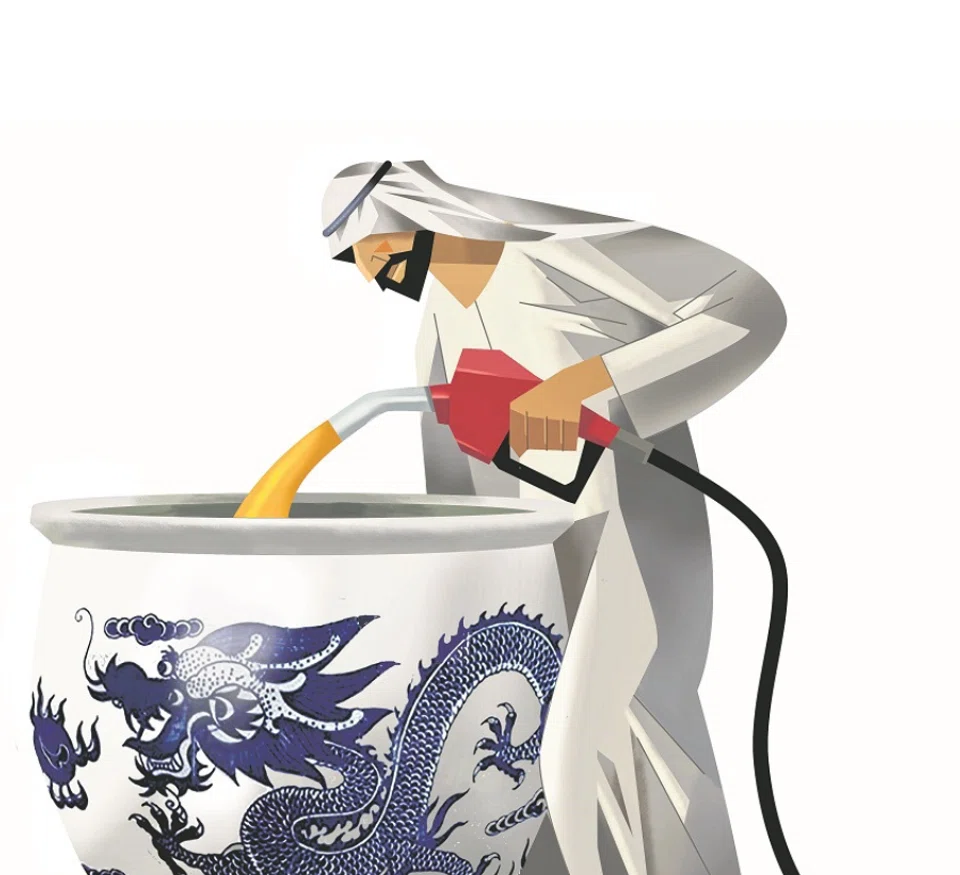
Li Qiao (pseudonym) is the 40-year-old founder of a Shenzhen social gaming company. At the start of last year, with his company facing cash flow problems, he looked for financing from US dollar funds in China. However, he had no luck after half a year of seeking out more than a dozen such institutions.
In July last year, Li received a call from a Saudi Arabian company which expressed interest in his business. After two meetings, Li was surprised by the speed of progress when the prospective investor asked if he was willing to visit Riyadh to study the local market and explore its opportunities.
While Middle Eastern funds’ investment portfolio in China runs the gamut from social gaming to smart manufacturing and logistics, NEV manufacturers like Nio are especially favoured.
Middle Eastern funds betting on China
After checking with his peers, Li learnt that contrary to US investors who are now more cautious about investing in China, Middle Eastern funds are actively acquiring Chinese assets. In fact, business study trips to Middle Eastern countries such as Saudi Arabia and the United Arab Emirates (UAE) have become mandatory for many Chinese business people.
According to data from Global SWF, a platform that tracks sovereign fund investments around the world, the sovereign funds of six Gulf countries, including Bahrain, Kuwait, Oman, Qatar, Saudi Arabia, and the UAE, made direct acquisitions and investments totalling US$2.3 billion (S$3.095 billion) in China last year. In 2022, the total amount was only approximately US$100 million.
If investment in China from companies and funds owned by sovereign wealth institutions is included, the total Middle Eastern investment in China last year far exceeds the US$2.3 billion. Aramco, the Saudi state-owned oil company, alone invested more than 32.9 billion RMB (S$6.007 billion) in China last year; CYVN Holdings, backed by the Abu Dhabi goverment, made two separate investments which totalled more than US$3 billion in Chinese new energy vehicle (NEV) manufacturer, Nio, in June and December last year.
While Middle Eastern funds’ investment portfolio in China runs the gamut from social gaming to smart manufacturing and logistics, NEV manufacturers like Nio are especially favoured. From new upstarts to established stalwarts, investors from the Middle East are among the investors of car manufacturers such as BAIC Bluepark, Great Wall Huaguan and Geely Auto.
When interviewed by Lianhe Zaobao, Professor Wang Yongzhong, an expert on the issue from the Chinese Academy of Social Sciences, shared his analysis that this is in line with the intention of Middle Eastern countries to diversify their economies to become less reliant on oil.
... China’s management experience in developing these emerging industries from scratch is what countries like Saudi Arabia and the UAE need.
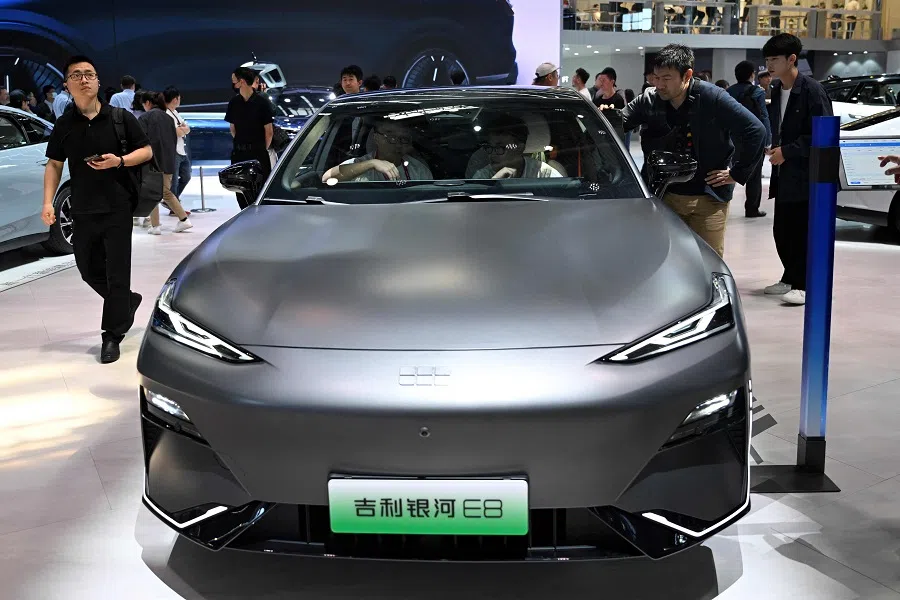
Middle Eastern countries have accumulated wealth through their rich oil and natural gas deposits, but their anxieties over traditional energy sources running out are ever present, so many countries in the region have come up with transformation goals.
For example, Saudi Arabia hopes to increase its proportion of renewable energy power generation to 50% by 2030; the UAE aims to have renewable energy account for 44% of its energy structure by 2050 under its “UAE Energy Strategy 2050”.
Strategic complementarity
Professor Wang said that China’s strengths in manufacturing, infrastructure building, and new energy industries are highly complementary with the Middle Eastern market. At the same time, China’s management experience in developing these emerging industries from scratch is what countries like Saudi Arabia and the UAE need.
Yang Sen, the investment and financing director of Quicktron Robotics, a Chinese company specialising in logistics robots and which Aramco invested in, told Lianhe Zaobao: “Investors from Middle Eastern funds will make it clear that they hope to invest in companies that complement local industries in the Middle East.”
Yang said that unlike American venture capital funds that focus on “dreaming big”, Middle Eastern capital is more pragmatic and concerned about whether the companies they invest in have mature products and production lines, and intentions to enter the Middle Eastern market.
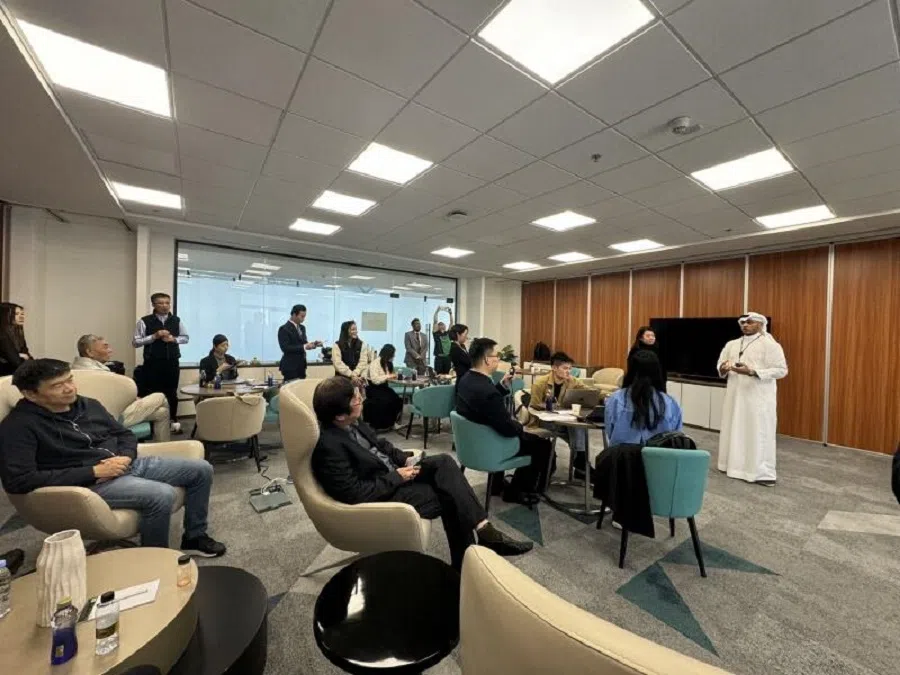
Yang said, “They bring their own agenda and goals with them when looking for Chinese partners. The questions they ask are often very detailed, and they state their needs clearly without beating around the bush.”
This is a common sentiment shared by many people who have interacted with representatives of Middle Eastern funds. When it comes to investing in China, especially in corporate equity investments, these funds look beyond monetary returns to focus on attracting foreign investments and bringing Chinese companies into the Middle East to catalyse economic transformation.
Middle Eastern funds were already looking East for opportunities. Now, they finally have the chance to go bottom fishing.
For instance, in the NEV industry, Middle Eastern investors are not just investing in car manufacturers, but also in other parts of the supply chain.
In October 2023, NIF, the investment arm of NEOM Saudi Arabia, invested in Pony.ai, a Chinese autonomous driving technology company. In return, Pony.ai would set up an autonomous driving manufacturing facility, and a research and development centre in the future city of NEOM. On a similar note, in the same period, the Abu Dhabi Bin Omeir Group entered into a joint venture with Chengdu Xiling Power, an auto parts maker, to build a production line for NEV parts in Abu Dhabi.
The logistics company, J&T Express, which received investments from the Riyadh-based eWTP Arabia Capital, expanded into the Middle East back in 2022. At the end of 2023, it established seven warehousing and distribution centres in Saudi Arabia, with 40 sorting stations and 3,000 employees.
Middle Eastern funds after undervalued Chinese assets
While Middle Eastern funds have been investing in China all along, their pace of investment picked up visibly in 2023.
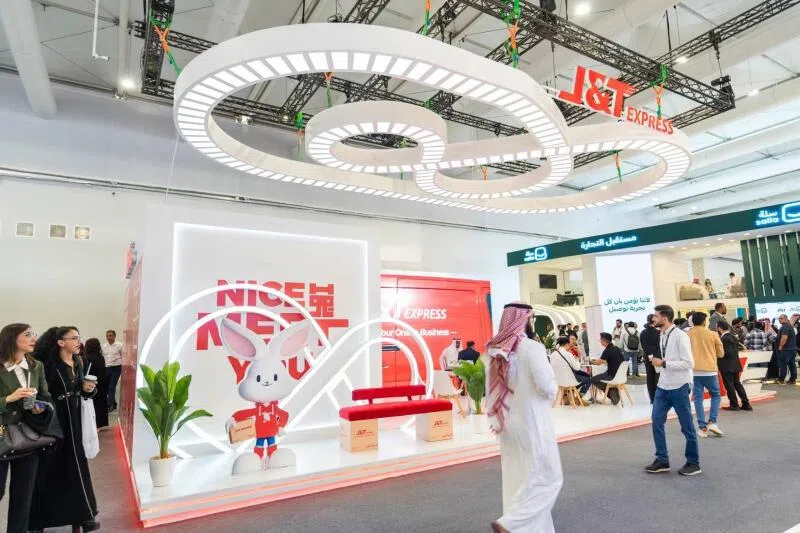
In this regard, Wen Shaobiao, an assistant researcher at the Middle East Institute of the Shanghai International Studies University, shared his analysis for the underlying reasons with Lianhe Zaobao. First, Middle Eastern funds could be rushing to turn their cash piles into assets following the surge in oil prices; Second, Chinese assets are greatly undervalued at the moment.
Wen said that after the Covid-19 pandemic, rising interest rates in the US, the Sino-US rivalry, and the adoption of a “China+1” strategy by many European and American companies have reduced the valuation of Chinese assets. He added, “Middle Eastern funds were already looking East for opportunities. Now, they finally have the chance to go bottom fishing.”
Wen opined that this also explains why Middle Eastern funds remain interested in Chinese stock markets despite the departure of foreign funds one after another. He said, “Investing in its secondary market goes to show that Middle East organisations are positive about and confident in the long-term development of the Chinese economy.”
Chinese media outlets reported that the ADIA and the Kuwait Investment Authority are among the top ten biggest shareholders of A-shares at 51 publicly-listed companies at the end of the third quarter in 2023.
In February this year, Saudi Arabia’s leading asset management company, Riyad Capital, and China’s largest public equity fund, E Fund, signed a memorandum of cooperation to cooperate in stock market investment.
In any case, both the acquisition of undervalued Chinese assets and investment in emerging industries in China are inseparable from the strategic considerations of Middle Eastern funds.
... high-level exchanges between countries can directly affect the investment preferences of its sovereign wealth funds.
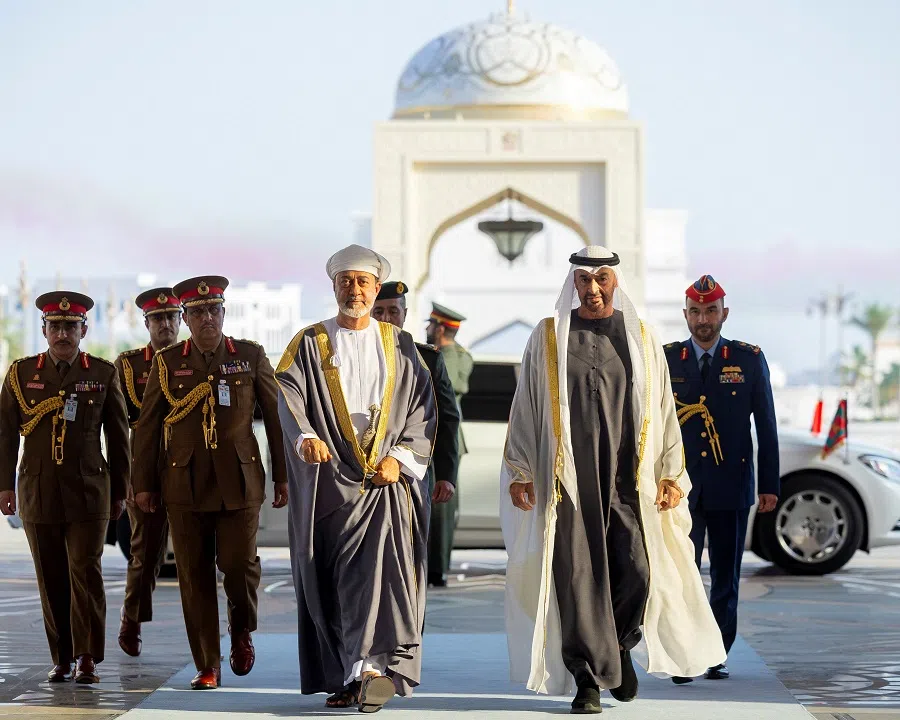
Wen said that Middle Eastern funds are entrenched in European and American markets, but Middle East countries, especially Saudi Arabia and the UAE, increasingly seek “autonomy” in view of slower growth in both the European and American economies in recent years, and as the US reduces oil imports from the region. He added, “Choosing to move closer to China is also a type of strategic independence.”
Such strategic considerations are buttressed by China’s diplomatic and political influence in the Arab world.
An investor who has been stationed in Saudi Arabia for a long time told Lianhe Zaobao that in the country, high-level exchanges between countries can directly affect the investment preferences of its sovereign wealth funds.
Preferring to remain anonymous, the investor also pointed out that following President Xi’s state visit to Saudi Arabia in 2022, the number of study visits made by Chinese business people to the country quickly increased. He said, “Some came invited, while others came on their own to seek funding.”
The Riyadh-based eWTP Arabia Capital previously disclosed to the media that it had received 1,500 business study visits originating from China in 2023.
Middle Eastern funds unable to cover US$100 billion private equity gap
Another aspect of such bi-directional exchanges is mismatched expectations. The investor mentioned earlier noted that most Chinese companies and venture capital organisations that head to the Middle East hoping to find local tycoons to bankroll the shortfall due to the reduced funding from their European or American backers return home empty-handed.

The founding partner of eWTP Arabia Capital, Huang Shuozi (Jessica Wong), was candid to say during a Lianhe Zaobao interview that the Middle East needs more mature enterprises that are willing to undertake complete localisation based on local market requirements. At the moment, both sides are still at the stage of getting to know each other better, and there is a long way to go before Chinese companies head to the region en masse.
The earlier-mentioned investor also feels that Middle East study visits have become mandatory for Chinese business people, especially those in venture capital, because of the huge increase in investment by investors from the region. Hence, there is an illusion that American capital can be replaced by Middle Eastern capital.
Furthermore, he pointed out that the large increase is because the previous investment allocation ratios of Middle East sovereign funds to China were mostly lower than 5% of their overall portfolios. “Last year, they took advantage of the low prices to rebalance their portfolios,” he said. “In fact, the volume of Middle Eastern funds entering China is far less than the amount of money invested in China by European and American investors back then,” he added.
Information provided by market data company Preqin shows that in the past decade, private equity funds investing in China raised an average of nearly US$100 billion per year, but last year they raised less than US$5 billion. The same investor commented, “Middle Eastern funds are unable to cover the shortfall of nearly US$100 billion.”
The links between Middle Eastern funds and Beijing have made Washington uneasy.
He remarked that even though Middle Eastern funds are currently reducing their allocations of European assets, the US market is still their focus, especially in fields such as AI and medical care. On the other hand, their investment in Chinese assets is mainly out of strategic considerations and for balance instead of being the centrepiece.
Worries over key technology, infrastructure, and data falling into Beijing’s hands
The links between Middle Eastern funds and Beijing have made Washington uneasy. Last November, Bloomberg reported that investment institutions like the ADIA, Mubadala Investment Company, and the Public Investment Fund are facing more stringent checks from the Biden administration over their business deals in the US following their frequent investment in China.
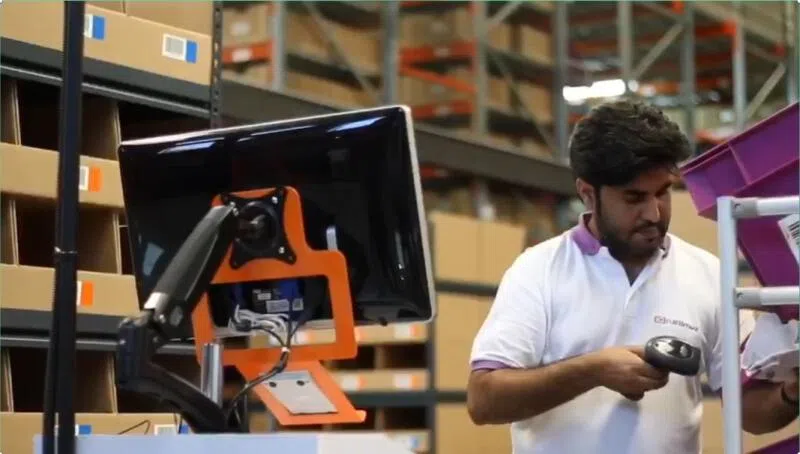
The Bloomberg report quoted those familiar with the matter as saying that in recent months, US officials have become increasingly concerned that critical technology, infrastructure and data headed for the UAE may eventually fall into the hands of Beijing. According to the report, although Gulf countries officials emphasised that they are not replacing the US as a major investment partner, the US government is still worried.
AI company leaves China over advanced chips
In February this year, G42, an AI technology and investment company owned by Mubadala the government investment arm of Abu Dhabi, announced its divestments in China to focus on Western markets such as the US instead. G42 CEO, Xiao Peng, had earlier said that they were in a position where they had to “make a choice“ to allay the concerns of its American business partners in order to continue accessing advanced computer chips manufactured in the US.
G42 then sold its shareholdings amounting to nearly US$500 million in Chinese companies like Bytedance, JD.com and HeyGears.
Those in the industry believe that G42’s decision indicates that the ADIA is paying more attention to the risks brought by increased scrutiny from the US. This is also the consideration of a substantial number of Middle Eastern investors, and a challenge arising from the current Sino-US competition.
Middle Eastern countries, unlike European countries that follow the US’s lead closely, would not decouple or de-risk from China.
Professor Wang from the Chinese Academy of Social Sciences concluded that under its “small yard, high fence” strategy, the US would definitely rally its allies to restrict China’s high-tech development, and Middle East countries would also make balanced choices aligned with their own interests.
But he also emphasised that given their growing sense of independence, Middle Eastern countries, unlike European countries that follow the US’s lead closely, would not decouple or de-risk from China.
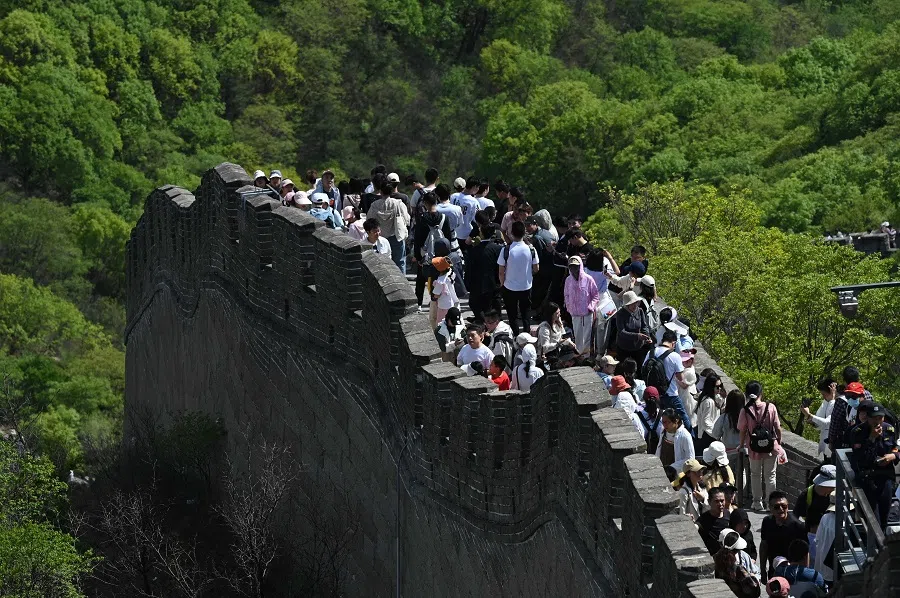
In a Lianhe Zaobao interview, Shi Mao, the founding partner of Conswall Capital which has set up a new office in the Middle East this year, said that competition between China and the US will not abate in the Middle East, and countries in the region, especially Saudi Arabia and the UAE, will continue to bet on both sides.
This strategy is an adjustment made by the Middle East in response to changes in global geopolitics. On the one hand, it meets some of its own developmental needs, and on the other, it enables the region to adopt a strategic position with greater independence in the context of the Sino-US rivalry.
For Chinese companies, this represents a new source of funding and a new market. However, industry insiders also highlighted that these companies must also realise that while European and American funds entered China in the past out of optimism over its developmental prospects, Middle Eastern funds have more complicated aims. In the short term, it will also be very difficult for them to replace European and American capital in the Chinese market.
This article was first published in Lianhe Zaobao as “抄底还是战略再平衡?中东资金涌入中国 探商机寻伙伴”.





